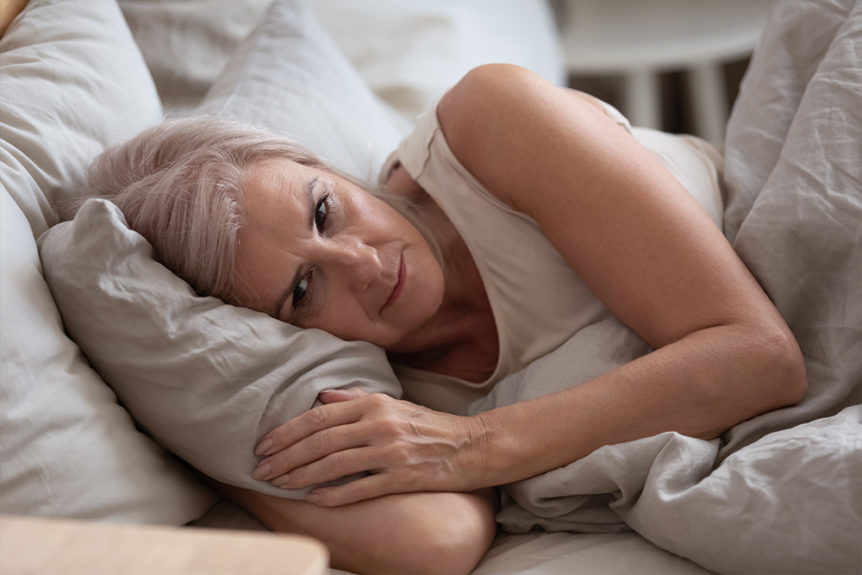How Menopause Can Affect Your Sleep

Are you tired of counting sheep? Along with hormone shifts, hot flashes, and excessive sweating, menopause often brings changes to sleep. If you struggle to fall asleep and stay asleep, you are not alone. The National Sleep Foundation reported that as many as 61% of menopausal women struggle with insomnia.
Although menopause serves as the unofficial welcome to middle age, it does not mean you have to struggle through sleep deprivation forever. Hormonal changes are normal, but suffering from them doesn’t have to become your normal.
1. Changes in hormones
Most menopausal women experience hormonal changes that can lead to mood swings, weight gain, hair thinning, night sweats, and irregular periods. These hormonal shifts are caused by changing levels of estrogen, progesterone, and testosterone. As a woman’s sexual hormones rise and fall during menopause, there are some commonalities that affect the majority of women in this season of life.
2. Hot flashes
Hot flashes are a common symptom of menopause and can often be associated with poor sleep. It’s common for menopausal women to feel like they’ve been awoken during a hot flash, but usually their bodies wake them up just before a hot flash begins. Doctors credit this to hormonal changes in the brain that provoke nighttime waking.
3. Other stressing factors
During menopause many women develop sleep disorders, such as snoring or sleep apnea, which are triggered by a loss of estrogen and progesterone. Sleep disorders can sometimes lead to depression and anxiety.
Doctors recommend seven to eight hours of uninterrupted sleep each night, but nearly a quarter of perimenopausal women have trouble falling asleep during the week. A study from the CDC in 2017 even showed that women continue struggling with sleep issues, even once they are post-menopausal. Struggling to fall asleep and waking throughout the night does not provide the quality sleep women need during this season of life.
4. How to get a better night’s sleep
If you’re searching for a sleep solution, we recommend establishing a regular bedtime routine. Bedtime routines are not just helpful for small children but are healthy for all of us, as they communicate to our bodies when it is time to go to sleep. Start by going to bed at the same time every night and see if it makes a difference in your ability to fall asleep.
Other factors that may help you get a better night’s sleep include the following:
- Limiting caffeine during the day
- Avoiding naps during the day, as they may hinder you from sleeping well at night
- Emptying your bladder before bed
- Ensuring your bedroom is cool and well-ventilated
- Avoiding alcohol, tobacco, and spicy foods before bed
- Doing gentle yoga or deep breathing exercises in the evening
- Trying sound therapy by adding white noise, like a fan or sound machine (We recommend this sound machine from Amazon.)
- Diffusing essential oils that are known to facilitate sleep or draw a luxurious bath and add drops of lavender, vetiver, and cedarwood essential oils. Breathe in their soothing scents to help your body relax before bed.
Here at North Texas Vitality, we want to help you wake up refreshed each morning, filled with energy and passion for the day ahead. Talk to us about a personalized treatment plan that may include pills, injections, creams, or pellets. Schedule a consultation with us today!
